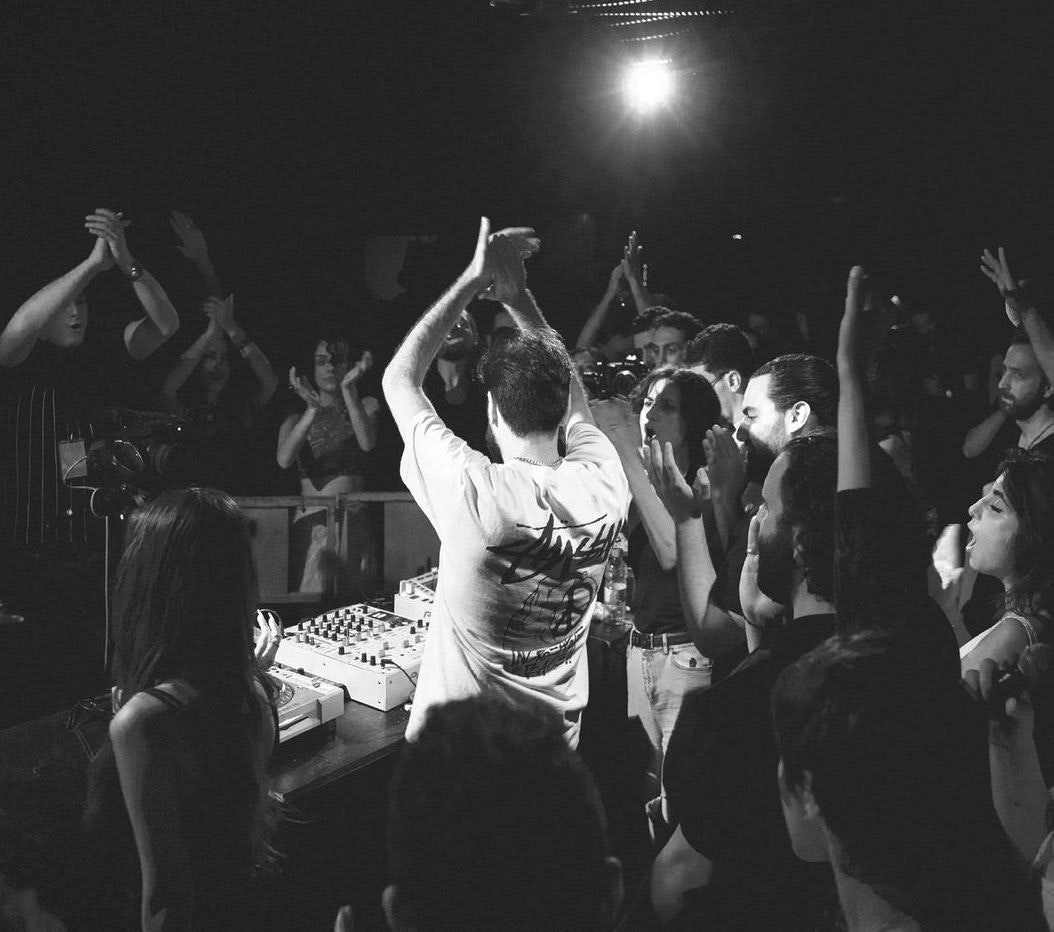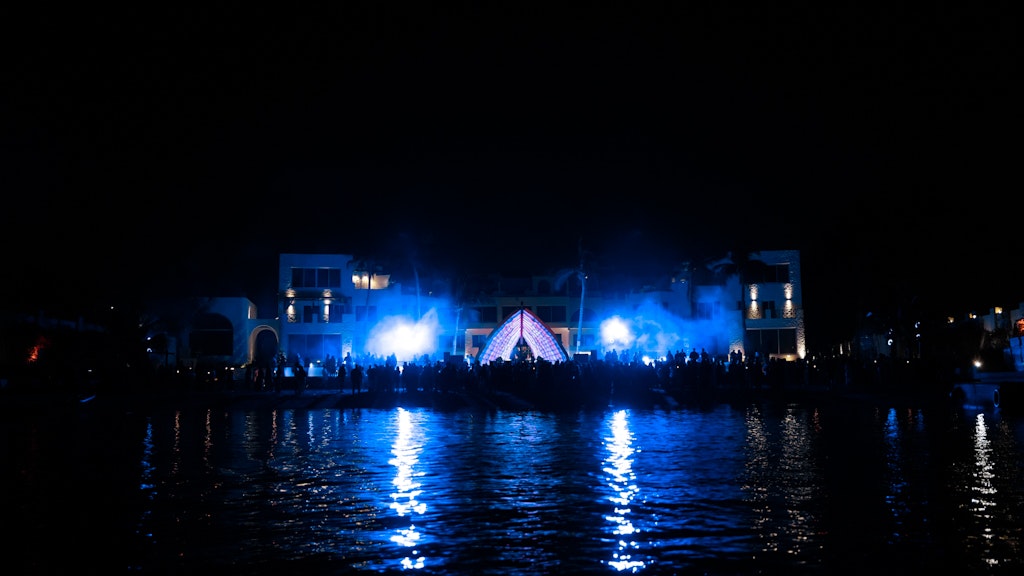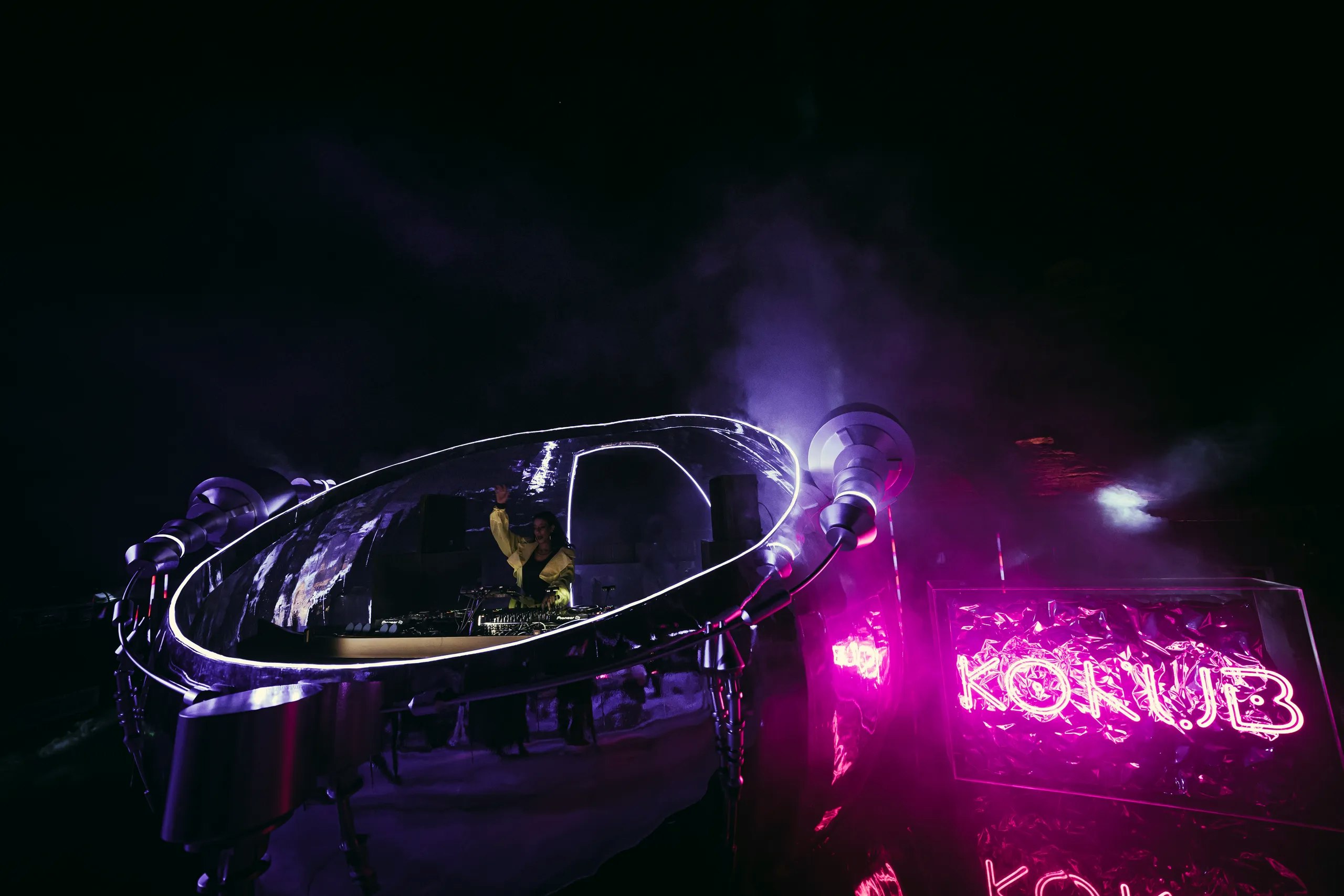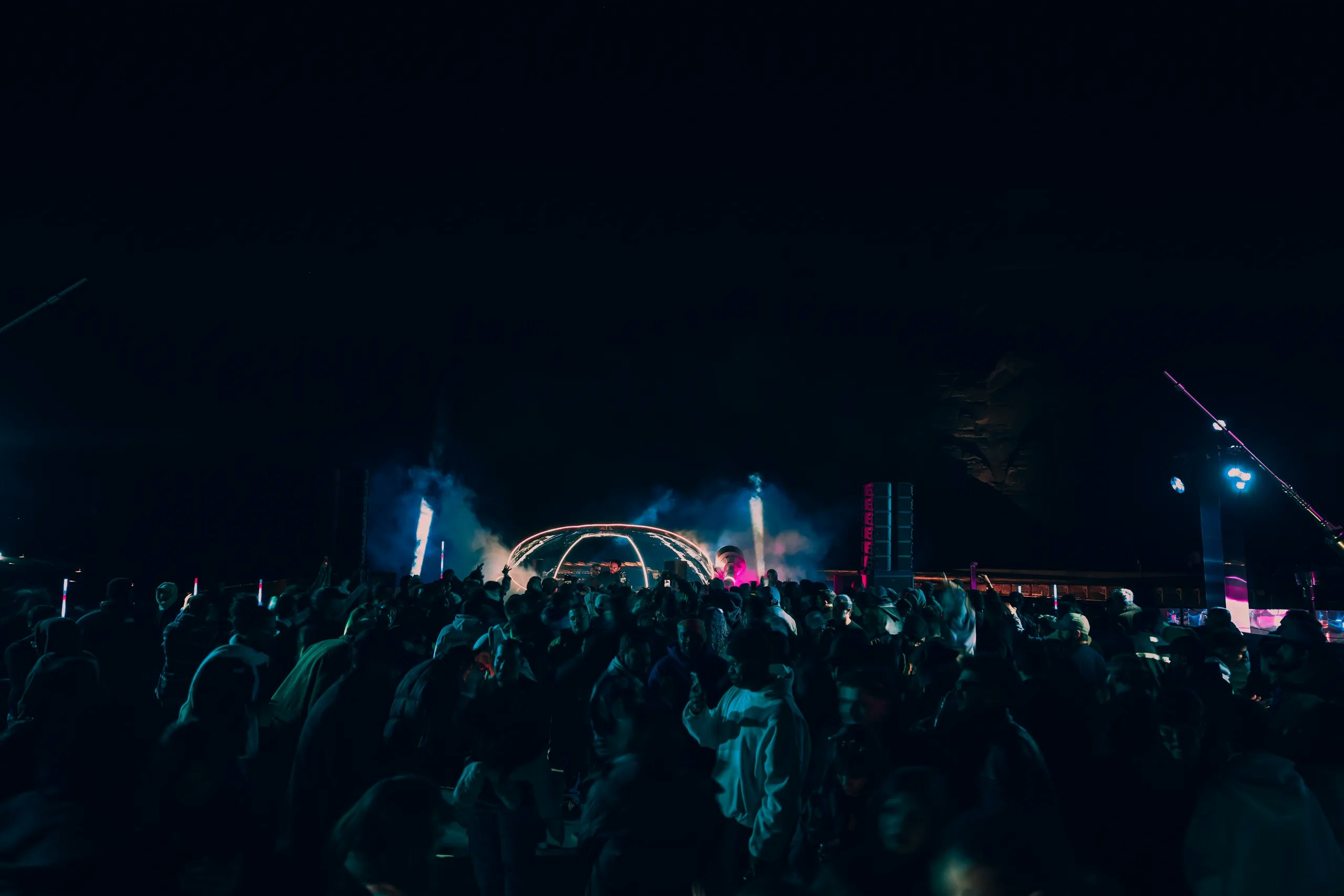

Sounds of Resilience: Syrian Artists Unite in 'Sawt Syria
By XP Publications
July 16 2024
Sounds of Resilience: Syrian Artists Unite in 'Sawt Syria
By XP Publications
July 16 2024
When envisioning Syria, music might not be the first thing that springs to mind. Yet, despite contrary belief, Syria boasts one of the region's most vibrant and underrated music scenes. The brutal aftermath of the war has tragically displaced millions across Syria, the Middle East, and Europe. Enter Sadaa Sound Syndicate, a dynamic, cross-border collective of self-organized Syrians attuned to the agential possibilities of sound. Their mission? To “connect Syrian sonic practitioners across the world in order to to exchange, collaborate and create with one another”.
Recently, the Syrian group partnered with Boiler Room to present 'Sawt Syria' (meaning the sound of Syria), an editorial exploration through the vibrant underground music scenes within Syria and its widespread diaspora. This project celebrates the diverse sounds of Syrian artists, from Hip-Hop and Techno to Electro, Shaabi, Experimental Bass and much more. The broadcast, divided into two parts, begins with 'Motherland' in Damascus, showcasing the rich talents and stories of Syrian DJs and musicians. 'Exile,' filmed in Berlin, highlighting the perspectives of Syrian artists and producers in the European diaspora. Each segment is accompanied by a 30-minute video essay that delves deeply into the lives of these artists, exploring their musical journeys and community organizing.
Sawt Syria was led, curated, produced and directed by Sadaa Sound Syndicate members Yamen Mekdad, a London-based Syrian artist filmmaker and community organizer, and Juline Hadaya, a London-based researcher and filmmaker, who insisted on keeping the project intimate and collaborative, stating that “we made it a point to solely work with our friends, peers and comrades on this. We felt it was crucial to engage our community in all aspects from the programming to the production crew”.
“Motherland” consisted of a 6-hour broadcast recorded in Damascus back in 2022 which includes of Stash, a sound-engineer, producer, and a graduate from the Higher Institute of Dramatic Arts in Damascus, with a broad production catalog ranging from underground Techno to theater soundtracks, Boscho, a regionally established DJ and producer hailing from Aleppo, Walashi, an on-the-rise producer and DJ based in Damascus, Yara M whose highly regarded as Syria’s first female DJ, with Underground House Syria, a collective founded by MH-D and Saade, key figure in the electronic music scene in Syria.
Meanwhile “Exile”, which was shot in Berlin, comprises of a 7-hour broadcast recorded in Berlin also back in 2022 which enlists Amsterdam-based international Syrian rapper Bu Kolthoum, up-and-coming talent residing in France, Tamman, Paris-based Jundi Majhul whom is one of Syria’s first Hip Hop artists, Berlin-based lo-fi producer and bootleg aficionado Abu Muhammad, Amsterdam-based rapper Malkom alongside Berlin-based rapper Ebn Hoari, all who ran the Rap Segment, at the same time the broadcast also included Aleppo-bred Turkey-based producer Hello Psychalleppo, who most famously coined the genre Electro-Tarab fusing maqam with electronic music in his own personalized style, C1 Collective (ELAYN, KAYAL, MAJDOLEN, SAMARA H, Qكيو), a self-organized group of Syrians redefining their identity through electronic music and arts in Berlin, LazerGazer & Noise Diva, who run contemporary Amsterdam-based collective KlabKlab showcasing talent in the experimental scene, veteran shaabi producer Rizan Said, who served as Omar Souleyman’s keyboardist and now established in Europe with his club-dabke sound, with Berlin-based techno DJ and Kitkat resident Núria.
Whilst the show broadcasts demonstrate these DJs’ musical styles, the video-essays delve deeper into their artistic practices and intentions in organizing amidst the war. In the Motherland segment, when reflecting back on the dismay of the war and her musical formative years, Yara M talks about how people used to attend events and parties during bombardments, expressing that “In 2011, the situation worsened all over Syria so we had to stop for a couple of years, we came back to it in 2013. She says, ‘2013-2014 I was in Beirut; I organized a few events in small clubs, and I felt able to play in public as I didn’t have the same feat as before. People started to attend such events again and the situation wasn’t even good. There were bombardments and shelling daily. People were very stressed and they needed to let go on a night out and dance with friends’.
Underground House Syria’s Saade follows up on that point with how people coped and came together during these hardships, stating that “The relationships within the Techno scene are very unique between like-minded people sharing similar ideas, characters, goals and the lifestyle, that saves them time when getting to know each other and gives a nice energy when they meet on the dance-floor. They are genuine people who want to have fun - the vibe was always very chill, the spirit between organizers, the crowd, artists or whoever, always feels like a family thing; everyone knows each other, no problems. It is a comforting environment, a comfortable and safe space. A space rich with unique and diverse characters who all want to go out and have fun and then return to their lives with better energy.”
Meanwhile, Stash reflected on his music beginnings and how Damascus helped him grow as an artist, explaining “Because I am a musician, the crisis has affected me more, I think. I remember my friend’s dad saying something once that stuck with me, it was Osama Harfoush’s father, who, in my opinion, is the most important electronic musician in our scene. He said “you guys are more sensitive, that’s why you eat shit!” Everyone lives through the same reality, but one gets depressed and another doesn’t even if they live together. I believe in this concept ever since, from the minute I entered Tishreen University all I could feel was social rejection because of the demographics in the area. I rejected, I was uncomfortable, and it was obvious in my behavior, that’s why I used to escape to Damascus because nothing suited me back there.`
Although the musicians largely agree on the commonality of the Syrian experience, there’s a notable difference between the first and second video-essays regarding how the significance of music is conveyed and interpreted, and the role music has played in the post-war Syrian context over the past decade. The film offers the artists’ perspectives in exploring how their practice shapes their self-perception while purveying the world they live in. It delves into their creative processes, the evolution of their artistic expressions, and how these elements intertwine with their experiences and identities through the musical framework.
In the Exile segment, thinking back on how his (and others’) life was affected, Bu Kulthoum paints a melancholic canvas with his experience “I cannot explain my experience as a Syrian to a non-Syrian; honestly, they would have to be Syrian to understand the levels of changes in my life over the past 12 years until now, but life is crazy man, life is really crazy honestly. Never thought I’d be here, I never imagined that one day I would lose my house and family, or that I would lose a lot of friends, I never imagined I’d see what I saw.”
The Syrian rapper delves into how music has been his lifeline, helping him navigate and cope with the tumultuous circumstances, “but what I can say is music saved me from my experience as a Syrian, music gave me a window to express all the feelings I couldn’t express to anyone, when I am with Syrian friends, we are all aware that we have gone through similar experiences, so it becomes difficult to share, because we know we’re all on the same boat, what can you say?” He elaborates further with “For me, music was the outlet that supported me, and then suddenly coincidentally, funny enough, It supported many other people too. Being Syrian haunts you until death, it motivates you, it energizes you, it weighs you down until death; it might bring you pride, humiliation, and whatever until death, is its own experience man.”
Another point of view is discussed through the lens of Noise Diva, explaining “When I was in Syria, it was a kind of escapism because art was about aesthetics. Here, it’s different, here in Amsterdam in 2022, art is about politics, which I love, but it also becomes complicated at some point. Am I meant to be a politician or an artist? Now I process this question through the fact that I am trying to envision a parallel reality through my work. So I try through sound, DJing, music and film to create, to use imagination as a tool to practice politics. We shouldn’t shy away from politics, we should engage, we should try because it’s important; otherwise they’re gonna do what they want, and we’re gonna be stuck in our reality under their rule, so I try to stay playful and have fun. I love it. I’m 100% an artist and nothing else can describe me, everything is about this. I'm super engaged, I can’t step away from art, otherwise I’d be a very depressed person, it’s the place where I can add color.”
The Syrian multidisciplinary artist concludes with a message to her fellow Syrian comrades in the Motherland, “I want to tell those who are still in Syria they should know we’re not well over here. We're also struggling a lot. I know it’s much worse inside, by far but to be Syrian is difficult anywhere in the world. I hope that people try to reach out more, for collaborations, other work, reach out more to us, we’re not doing so well and we’re losing a lot, we sacrificed a lot by leaving, not all of us of course, but I hope the resentment dissipates once it becomes clearer; pain is pain, no matter where you are. My sweetest wishes to go out to the people of Damascus, the people of Syria.”
This special broadcast illuminates the often-overlooked talents of Syrian artists, both within the country and across its diaspora. Through the eyes of these remarkable individuals, they explore the historical and political tapestry of Syria, delving into how the war reshaped their lives. Witness their resilience as they navigate the hardships of displacement and adaptation, turning adversity into artistry. Their creativity and determination blossom into something profoundly beautiful, using every resource at their disposal. For an intimate glimpse into their lives, stunning performances, and the project's fruition, immerse yourself in the entire Sawt Syria playlist on the Boiler Room website.
SAWT SYRIA PLAYLIST LINK
https://www.youtube.com/watch?v=SFf5KBPRJp0&list=PLx3QyNMosJdy4PuqPVk6teXqakIPQ81yQ
Share this


